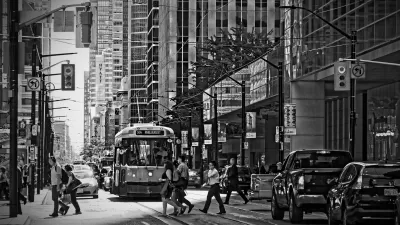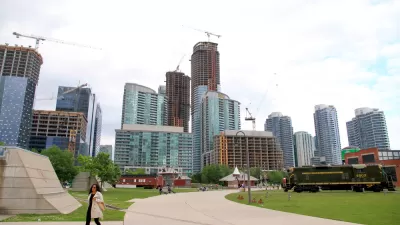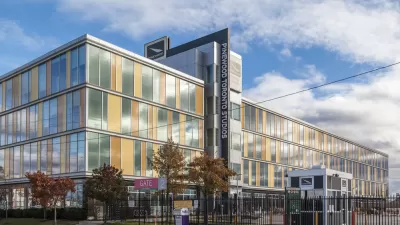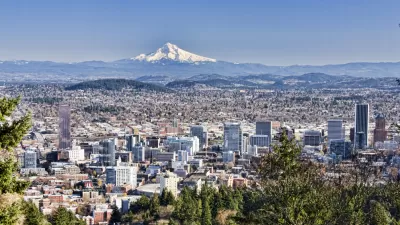Inclusionary zoning, a policy tool designed to ensure new developments include a required number of affordable housing units, will soon be the land of the land in Toronto, Ontario. Not everyone is a fan of the new policy.

The Toronto City Council has adopted a new inclusionary zoning policy, according to multiple reports.
For background on the city's development of its new inclusionary zoning policy, an article by Matt Elliott explains how inclusionary zoning works (as does Planetizen's Planopedia) and digs into the politics of inclusionary zoning. On that latter subject, Elliott writes:
But here’s the catch: to really make this work, some angry homeowners of Toronto — the kind who you might call NIMBYs, and who show up at neighbourhood consultation meetings to angrily complain about how new developments are too tall, or too dense, or cast too many shadows, or will totally make traffic worse — are going to need to chill out.
For context on the city's housing market, and how soaring prices and a lack of affordable options are compelling this policy change, Elliott cites a recent report by Social Planning Toronto, which found that 30,862 affordable rental units—providing enough housing for an estimated 74,686 people—could have been produced between 2011 and 2020 if the city already had an inclusionary zoning policy in place.
An article published by mondaq updates the story after the City Council's adoption of the inclusionary zoning (IZ) framework, including details like where IZ applies. Specifically, the application of inclusionary zoning is limited to areas surrounding certain transit station areas known as PMTSAs as well as to three Inclusionary Zoning Market Areas. The latter are defined as "areas in the City that have experienced the greatest amount of new housing supply, significant price escalation and growth in rental prices, and where the City has determined that its inclusionary zoning requirements can be imposed without jeopardizing development viability."
An opinion piece for Marcus Gee, written for the Globe and Mail [paywall], expresses skepticism that the city's new IZ policy will be effective:
Whether it was a good day is another question. Interventions of this kind are usually associated with a cost. When governments force private companies to keep prices down, companies will find a way to compensate for it in one way or another. Developers who are asked to charge lower prices on some devices are required to charge more for the rest. In fact, owners and tenants of market units will be forced to subsidize the inclusive zoning.
FULL STORY: City Of Toronto Introduces Inclusionary Zoning Framework

Planetizen Federal Action Tracker
A weekly monitor of how Trump’s orders and actions are impacting planners and planning in America.

Maui's Vacation Rental Debate Turns Ugly
Verbal attacks, misinformation campaigns and fistfights plague a high-stakes debate to convert thousands of vacation rentals into long-term housing.

San Francisco Suspends Traffic Calming Amidst Record Deaths
Citing “a challenging fiscal landscape,” the city will cease the program on the heels of 42 traffic deaths, including 24 pedestrians.

Defunct Pittsburgh Power Plant to Become Residential Tower
A decommissioned steam heat plant will be redeveloped into almost 100 affordable housing units.

Trump Prompts Restructuring of Transportation Research Board in “Unprecedented Overreach”
The TRB has eliminated more than half of its committees including those focused on climate, equity, and cities.

Amtrak Rolls Out New Orleans to Alabama “Mardi Gras” Train
The new service will operate morning and evening departures between Mobile and New Orleans.
Urban Design for Planners 1: Software Tools
This six-course series explores essential urban design concepts using open source software and equips planners with the tools they need to participate fully in the urban design process.
Planning for Universal Design
Learn the tools for implementing Universal Design in planning regulations.
Heyer Gruel & Associates PA
JM Goldson LLC
Custer County Colorado
City of Camden Redevelopment Agency
City of Astoria
Transportation Research & Education Center (TREC) at Portland State University
Jefferson Parish Government
Camden Redevelopment Agency
City of Claremont





























